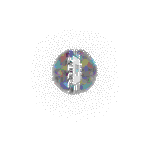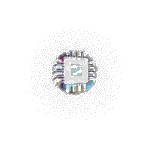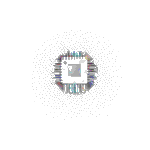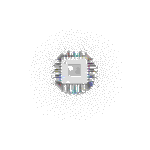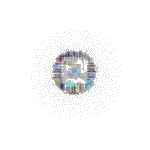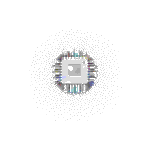Why should we think about forgetting in the digital age?
Digital media can identically duplicate a memory, so unlike analogue media
that degrades throughout time or processes of duplication, digital memory can be kept indefinitely.
Furthermore, once data is online, and the others start making copies and
disseminating, the memory proliferates and may live forever without the
original author being able to control or take back to make the memory
forgotten [1].
This situation could be problematic as what we do and say online (social
media sites, searching sites and smartphone apps) can be all recorded and
exposed on the web, in turn, the memory could come back and haunt us when
we no longer remember what we did and said [2].
As Mayer-Schonberger said, we need more technologies that are programmed to forget.
< Reference sources >
[1] Delete: The Virtue of Forgetting in the Digital Age. Mayer-Schonberger, Viktor, 2011. Princeton University Press.
[2] 25 Ideas for 2010: Digital Forgetting, 2009, Clive Thompson, on the Wired website.
Digital tools that forget (1)
Some digital tools we have/had are designed to forget:
Snapchat
The original idea of Snapchat was to produce a selfie app as a tool of communication, where the multi-media contents exchanged between users were meant to be ephemeral and self-erasing. Still, people can take screenshots of the contents to preserve. [1] Should the app improve the processes of forgetting by implementing a function that prevents users from taking screenshots?
Drop.io
This file sharing service let the users set expiration dates for the files uploaded, and deletion of the file can be executed after a certain period or after a certain number of people have viewed the file. Despite the innovative approach, this site no longer exists today, because in 2010 Facebook bought the company that provided the service.
[1]
Snapchat - Wikipedia, November 1, 2016.
Digital tools that forget (2)
Go Rando by Benjamin Grosser
This tool lets the Facebook algorithm become oblivious of how a user feels about Facebook posts in actuality.
http://bengrosser.com/projects/go-rando/
Digital tools that forget (3)
TigerText
This app allows users to send text messages with an arbitrarily set timing of expiration between 1 minute and 30 days. As it expires, the message will be erased on the server, also on the devices of both the sender and recipient. At the moment, the app is primarily used for clinical communication purposes
https://en.wikipedia.org/wiki/TigerText
Digital tools that forget (4)
Vanish
This technology has been developed by researchers at the University of Washington, and it is made to "self-destruct" a data after a specified period. Vanish encrypts the data specified and generates an encryption key. However this key "erodes" or "rusts" as time passes, and after a certain period, the data will become unreadable. In theory, the encrypted files made with Vanish can be implemented on various platforms: not only emails but any data stored in the cloud storage such as photographs, videos texts, and data on Facebook, Twitter, Google and blog platforms. This encryption method can operate independently of the platforms, so you do not have to wait for that the companies like Google and Facebook delete the file from the server. [1]
The time-ticking inaccessibility as a method of digital forgetting.
[1] The Web Means the End of Forgetting, 2010, Jeffrey Rosen.
http://www.nytimes.com/2010/07/25/magazine/25privacy-t2.html?pagewanted=all&_r=0
Is There Beauty in Forgetting? is a three-parted video art piece produced in 2015 by Shinji Toya. The work speculates about the aesthetic meanings of forgetting in the digital age. The part 1 and 3 of the video cite Mayer-Schonberger's statement and observations. This author, who wrote about the subject of forgetting in the digital age extensively, illustrated how our online footprints could be tracked and recorded to identify who we are and what we do in our lives.
The video also envisaged that if we would have algorithms that forget our personal data, the state of the information may become like a flowing a river (e.g. automated processes of both remembering and forgetting - like a flow of river that goes without our being conscious of it all the time).
Link
Disadvantage of an excessively good memory (1)
What can be bad about having an extremely good memory that is, or is analogical to the digital immortal memory?
Mayer-Schonberger's work suggests that too much memory can hold people back and let them fixate on the past, its details. The excess of memory can prevent people from generalising (abstracting knowledge) from experiences and moving on from the past to act in time in present moments. [1]
Cognitive experts claim that forgetting has a vital role for humans to make sense of the world [2]. Deprivation of it could limit or bias one's understanding of the world.
[1] Delete: The Virtue of Forgetting in the Digital Age. Mayer-Sch�nberger, Viktor, 2011. Princeton University Press.
[2] Why We Need to Let Our Online Memories Go. Mayer-Sch�nberger, Viktor, 2012. The Washington Post website
Disadvantage of an excessively good memory (2)
 |
 |
Funes the Memorious: a fictional character who lost the ability to forget
In Jorge Luis Borges's short story Funes the Memorious, Funes after this young man's riding accident, acquires the ability to remember everything he experiences, instead loses the capacity to forget. He remembers details such as the forms of clouds at a particular moment, streaks on a book and the shapes of foam made by a moving oar at a precise moment. And Funes has become able to reconstruct an entire day by recalling and relive it. And this recollection can take a whole day. [1] [2]
After an astonishing amount of reading, he has memorised classic literature works in details, but he fails to see beyond the particulars. His memories related to one kind of things are so diverse in details and sensuous traits that he is unable to believe the general idea (categorisation) of the things. What seems to be suggested here, as Mayer-Shonberger remarks, is that the absence of forgetting could make a human unable to generalise, abstract from experiences. [1] [2]
[1] Funes the Memorious, Jorge Luise Borges, 1964.
[2] Delete: The Virtue of Forgetting in the Digital Age. Viktor Mayer-Sch�nberger, 2011. Princeton University Press.
Disadvantage of an excessively good memory (3)
Hyperthymesia - tremendous autobiographical memory: the case of AJ
AJ, also known as Jill Price is a woman living in America who has an ability to remember the unusually vast amount of autobiographical information. This condition is called Hyperthymesia, and with this condition - like Funes in the Borges' story, people are given the ability to recall almost every day of their lives in tremendous details and vividness. [1][2]
It appears for AJ that the total recall often holds her back. The detail of the recall is extraordinary and "agonizing," and her recollections are "uncontrollable and automatic." She spends a considerable amount of time by being immersed in her past, to relive in them, like playing back an extraordinarily long film. These acts of recalling often prevent AJ from moving on from the past, making decisions and acting in time. [2]
It looks like too much memory can affect people's decisions and actions. In this case, forgetting seems to be given a benefit of unshackling us from the prison of memory, rather than it is an utter disadvantage. [2]
Could the digital memory have a similar effect to the hyperthymesia of AJ? If digital media operates similarly, and never forgets the mistakes and embarrassment we had in our life, and it keeps reminding of the past, could it hold us back?
--- Some words from AJ --- [2]
"Most people have called what I have a gift, but I call it a burden"
"I [...] remember bad - and every bad choice. And I really don't give myself a break."
"[R]emembering everything is both maddening and lonely"
--- Interviews of AJ, on ABC programmes ---


[1] Hyperthymesia - People with potential (website)
http://www.peoplewithpotential.org/hyperthymesia
[2] Delete: The Virtue of Forgetting in the Digital Age. Viktor Mayer-Sch�nberger, 2011. Princeton University Press.
Possible troubling scenarios caused by digital memory
(1)
- The board of examiners for your university course for teaching training may find your social media post with a picture where you were drunk and went wild at a party. And the board may think that to show the night-life activities in such manner encourages the underage drinking, and you may be disqualified of the teaching certificate even though you passed all the exams. (exemplified in Stacy Snyder’s case [1])
- The interviewer of your job application may have done a prior research about you by searching your name on the Google search and found social media profile, pictures, and all your tweets. Some posts may appear mismatching with the ‘desirable personality’ the interviewer presumes. Then you may not get the job, or be judged unfairly [2].
[1]
Delete: The Virtue of Forgetting in the Digital Age. Viktor Mayer-
Schönberger, 2011. Princeton University Press.
[2] The Web Means the End of Forgetting, 2010, Jeffrey Rosen.
http://www.nytimes.com/2010/07/25/magazine/25privacy-t2.html?pagewanted=all&_r=0
Possible troubling scenarios caused by digital memory
(2)
- What the internet calls "embarrassing" pictures that have gone viral may well be affecting the life of the person who is supposed to be "embarrassed".
- If you were a politician, and have been tweeting for several years, some journalists may pick up a potentially misleading and offensive tweet you inadvertently made. And the journalists may publicise this blunder as a big scandal, and this post may go viral and live forever. In turn, the society (digital memory) may become unforgetting and unforgiving of the blunder and give you no second chance.
Possible troubling scenarios caused by digital memory
(3)
-
In your email inbox, you may find a 5-year-old email that reminds you of a massive argument taken place with a family. Finding this email would bring back the memory and the emotional negativity of the event (exemplified in “Jane’s email” [1]). Even though you have once forgotten about it and let go, the emotional negativity may come back, and this reminder may not have existed if the digital memory was programmed to be forgotten.
-
If you look through the history of your social media posts for a decade, you may find some reminders of a horrible breakup (if there was any). This could affect your emotion negatively, even though you have once forgotten about the negativity.
[1]
Delete: The Virtue of Forgetting in the Digital Age. Viktor Mayer-Schönberger, 2011. Princeton University Press.
How to forget? (1)
The philosopher Umberto Eco thinks the technique of forgetting is a theoretical impossibility, as the idea of consciously and deliberately achieving a loss of memory delivers an irresolvable contradiction because forgetting is an unconscious act.
Could it be the case in practice or not?
[1] An Ars Oblivionalis? Forget It! , Umberto Eco & Marilyn Migiel, 1988. Modern Language Association
How to forget? (2)
WikiHow tells you how to forget:
How to Purposefully Forget Things: 9 Steps
http://www.wikihow.com/Purposefully-Forget-Things
[How to Forget a Bad Memory: 15 Steps]
http://www.wikihow.com/Forget-a-Bad-Memory
Could the methods introduced in the articles work?
How to forget? (3)
There is a Youtube video that is supposed to let you forget something through hypnosis.
https://www.youtube.com/watch?v=PKfqb_8y4pU
If this would work, would it mean Umberto Eco was wrong in a way?
*Please understand the artist neither guarantees nor affirms the effect of the hypnosis; if you try to engage with the hypnosis, it will be your discretion and responsibility to do so.
How to forget? (4)
Wired says there is a forgetting pill now.
The forgetting pill: How a new drug can erase your worst memories
http://www.wired.co.uk/article/the-forgetting-pill
It sounds like something from a fictional world, but will it work?
How to forget? (5)
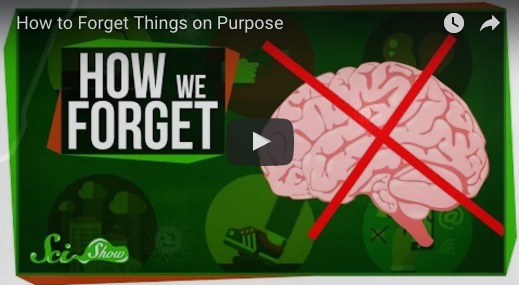
This YouTube video explores the question of how to forget things deliberately, by going through scientific studies. The speaker says “right now, even the most advanced forgetting techniques can’t completely eliminate a memory”, but “even if we can reliably make ourselves forget, who gets to decide what memories will be remembered?”.
How to forget? (6)
This article shows how to disappear from the web.
How to Disappear from the Internet
https://brightside.me/inspiration-tips-and-tricks/how-to-make-the-internet-forget-about-you-completely-220555/
If one disappears from the web, does it mean this person is forgotten in the digital society successfully? And what is the benefit of this deletionist approach?
What should we forget and remember?
 |
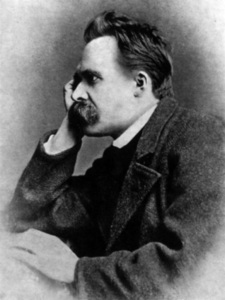 |
Fredrich Nietzsche brought to our attention that too much memory or historical knowledge brings with it the danger of precluding actions. The thought of consequences or feelings of resentment invoked by past memories or historical virtues can render humans inactive, even paralysed. [1] Furthermore, for the philosopher forgetfulness is essential to life; one can live without memory and be happy, but it is impossible to live without forgetting. The forgetfulness cures or prevents harms that can be caused by memories and history, because forgetting gives a human power to develop one’s own way of thinking and living (i.e. to transform), by breaking away from the past and history partly. Yet those who cannot utilise this power well can suffer from the memory of a painful event and become unable to move on; this can be harmful like a scratch gradually turning into a large wound or sickness. [2]
Although Nietzsche does not encourage us to be completely oblivious, like becoming a cow exemplified by the philosopher; the cow remembers nothing and they live in a continual forgetfulness. Rather history and memory hold values in which we can learn from them. Yet we need to abandon some parts of the anterior: historical virtue and tradition in order to create something new, including an individual that develops one’s own thought and keeps renewing the self. [2][3]
Nietzsche called this “active forgetting”. It is to engage with a selective sense of forgetting (and remembering), through rationally making decisions of the balance between what one should digest and what one should willfully abandon – of the past memories, for the sake of present life or future [3][4]
What should we forget and remember in the digital age, so that we can act and live away from the paralysing thoughts and worries associated with the unforgetting digital memory, at the same time develop thoughts of individuals?
What does it mean to adapt in the digital age, by practicing the active forgetting?
[1] Importance of forgetfulness for Nietzsche. Tim Short, 2012
https://itunes.apple.com/us/book/nietzsches-memory/id923848733?mt=11
[2] On the uses and disadvantages of history of life, in Untimely meditations. Friedrich Nietzsche (trans. R. J. Hollingdale), 1997. Cambridge University Press.
[3] Nietzsche’s cow: on memory and forgetting, in Platonic occasions: dialogues on literature, art and culture. pp. 142-158. R Begam and J Soderholm, 2015. Stockholm University Press.
[4] From haunting to trauma: Nietzsche’s active forgetting and Blanchot’s writing of the disaster. Peter Ramadanovic, 2001.
http://pmc.iath.virginia.edu/text-only/issue.101/11.2ramadanovic.txt










